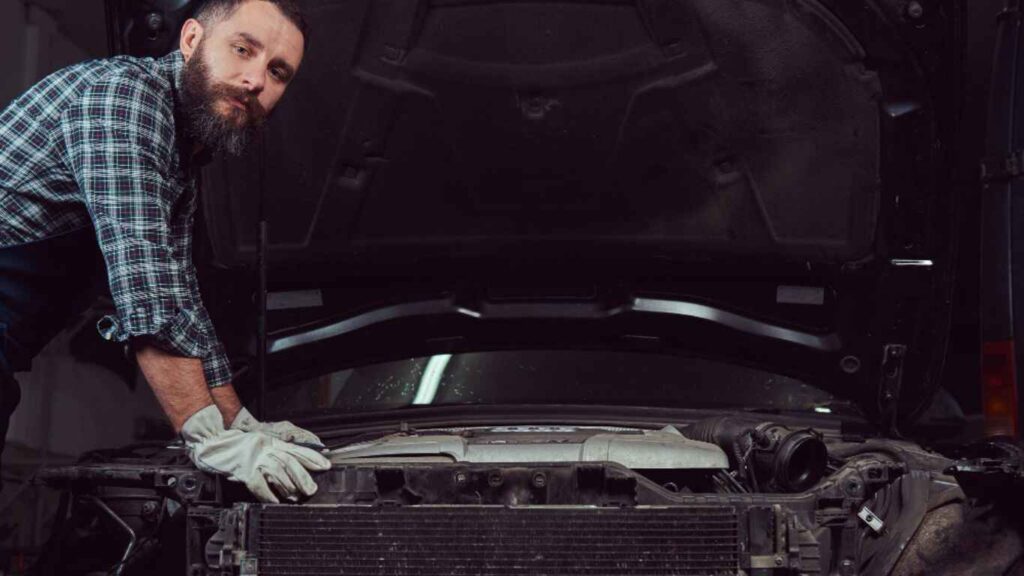Is Cleaning Inside of Car Engine Necessary?
Table of Contents
ToggleRemoving dirt and oil buildup from the car engine is not only about aesthetics but also essential for optimal car performance. Accumulation of dirt, oil, and grime is a typical occurrence that can cause problems like overheating as time goes on. Finding an oil leak is easier when the engine is clean and free of old parts, which ultimately saves money on future repairs. Additionally, maintaining spatial organization and order could potentially enhance the car’s performance metrics. Even though it may not be enjoyable, there will definitely be a valuable payoff in the long run. So if you are confused about Is Cleaning Inside of Car Engine Necessary, then you are at the right place.
Cleaning your car engine is not one of the most prioritized activities on your list, but it is a task that bears fruitful returns. Ignitions always shine and smooth-detail a car during its cleaning process but have several more benefits besides aesthetics. Also, it is quite a good fun, and even beneficial learning experience! Now, let us explain how to clean car engine in the garage without risking one’s health and the engine.
Benefits of Cleansing the Engine
Wow. Let’s address the reason before we proceed to the method. Indeed, dirt, grease, and grime will build up in your engine compartment over time. This could cause overheating and a range of other problems like decreased efficiency, or in some cases, even make it more difficult to identify the problem. There are other advantages of having an organized engine bay and one of them is that you will not have problems diagnosing any leaks or any tear and wear of hoses and belts early enough.

What You’ll Need
First things first; collect the things you need. Here’s what you’ll need:
A spray bottle or low-pressure hose: Don’t go overzealous hosing and spraying—just a light wash.
Some Guidelines
Following are the guidelines you should keep in mind while Cleaning Inside of Car Engine:-
Safety Above Everything
Ensure that the engine is cool before you start. You don’t want to burn your hands! Take care to separate the negative terminal on the battery to prevent any accidental short circuits. Safety comes first!
Protect Delicate Areas
For parts such as the air intake, battery terminals and electrical connections these should be covered with plastic bags. It will help avoid moisture getting in places that are not supposed to get wet.
Engage the Degreaser
Take the engine degreaser and liberally spray it on the task areas. Allow it to remain for around ten to fifteen minutes in order to dissolve dirt. During this time do some car appreciating and perhaps think of the next road trip! Get Rid of the Dirt with…Scrubbing!
After you have dipped your soft brush or sponge in water, commence scrubbing the engine. Do it softly, especially around certain parts, and concentrate on areas that tend to be these little hides of dirt. At this time, the manufacturer gets to take charge and see how cleaner the engine gets!
Rinse Like There Is No Tomorrow
Now it is time to remove the degreaser by washing it off. Utilize the water with a low-pressure hose or spray it via spraying bottle. Try to avoid wetting everything in order to wash off the degreaser and irritation of some sensitive parts.
How Often Should You Clean Your Engine?
The frequency of cleaning is governed by your location:
- Urban Areas: If you’re in a city with very little junk, clean your engine at least twice a year.
- Dusty Regions: If you are in a dry enclosure, try to clean it every 3 months.
- Rainy or Snowy Areas: Understand that whenever you clean, you do it every two months.
Final Thoughts
Cleaning your car engine is a satisfying chore and it will assist you in preserving the condition of your automobile. Engine cleaning is possible within a little duration and a little work done on the engine can make it look good and work better. Moreover, I simply love the look of a clean engine bay. Clean up all spills, and make me ready – how those words make me feel. That and maintenance of the car which now comes on the stage. Happy cleaning!
We hope that you got the answer to Is Cleaning Inside of Car Engine Necessary, let’s know the frequently asked questions.
FAQs
Q.1 Is cleaning the inside of my car engine really necessary?
Ans. Yes, cleaning your car engine is essential for optimal performance. It helps prevent overheating, makes it easier to identify oil leaks, and can enhance overall efficiency.
Q.2 How often should I clean my car engine?
Ans.The frequency depends on your environment: Urban Areas: At least twice a year dusty Regions: Every 3 months rainy or Snowy Areas: Every 2 months
Q.3 What are the benefits of cleaning my car engine?
Ans.Washing your engine eliminates dirt and grime that can lead to problems such as overheating and reduced effectiveness. It also assists in identifying leaks and wear on components at an early stage.
Q.4 What materials do I need to clean my car engine?
Ans.You’ll need a spray bottle or low-pressure hose, engine degreaser, soft brush or sponge, and plastic bags to protect sensitive areas.
Q.5 How do you start the engine cleaning process?
Ans.Start by making sure the engine has cooled down and then detach the negative terminal of the battery. This helps avoid any unintended electrical connections.
Q.6 What delicate areas should I protect while cleaning?
Ans.Cover sensitive parts like the air intake, battery terminals, and electrical connections with plastic bags to avoid moisture damage.
Q.7 How do I apply the degreaser?
Ans.Liberally spray the degreaser on the dirty areas of the engine and let it sit for 10-15 minutes to dissolve dirt and grime.
Q.8 How do I rinse off the degreaser?
Ans.Rinse using a low-pressure hose or a spray bottle, being careful not to wet sensitive components excessively.
Q.9 Can I use regular soap to clean my engine?
Ans.It’s best to use a specialized engine degreaser, as regular soap may not effectively remove grease and grime.
Q.10 Will cleaning the engine help with future repairs?
Ans.Yes, a clean engine allows for easier identification of issues, which can help save money on future repairs.

